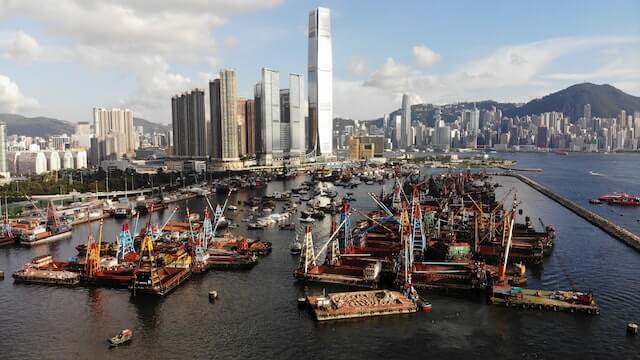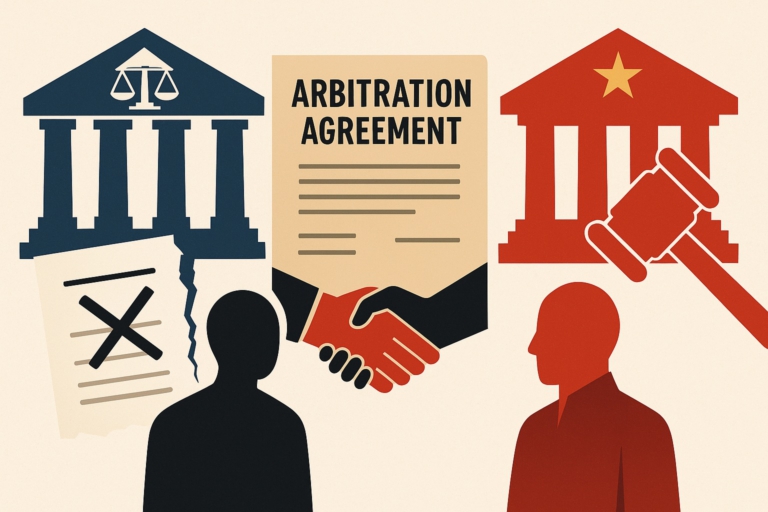
Key takeaways:
- Under China’s Export Control Law, which came into effect in December 2020, the Chinese government exercises export control over dual-use items, military products, nuclear materials and other goods, technologies, services and other items that are related to the protection of national security and interests and the fulfillment of non-proliferation or other international obligations.
- From September 2021 to April 2022, Tianjin Xingang Customs rendered China’s first batch of ECL-related administrative penalty decisions against seven trading companies.
- The companies subject to administrative penalties are located across China, indicating that not enough attention has been paid by exporters to export control compliance on a nationwide basis.
China’s Export Control Law (the “ECL”) came into effect on 1 Dec. 2020. As it has been almost two years since its implementation, it’s time for us to glimpse how China enforces the ECL.
I. Which one is the ECL enforcement authority?
Pursuant to the ECL, the Chinese government exercises export control over dual-use items, military products, nuclear materials and other goods, technologies, services and other items that are related to the protection of national security and interests and the fulfillment of non-proliferation or other international obligations. (hereinafter referred to as “Controlled Items”). Exporters who violate export control measures will face administrative punishment from law enforcement authorities.
The competent law enforcement authority refers to the state export control authorities. Specifically, in accordance with the White Paper on China’s Export Control released by the Chinese government, the state export control authorities include the Ministry of Commerce, the Ministry of Industry and Information Technology, the General Administration of Customs, the State Administration of Science, Technology and Industry for National Defence, the China Atomic Energy Authority and the Equipment Development Department of the Central Military Commission.
The Ministry of Commerce, the Ministry of Industry and Information Technology, the State Administration of Science, Technology and Industry for National Defence, the China Atomic Energy Authority and the Equipment Development Department of the Central Military Commission are respectively responsible for the law enforcement of Controlled Items in different fields, while the General Administration of Customs is responsible for supervising the export of Controlled Items.
As the export process is the core of the ECL, we can know the ECL enforcement from the Customs enforcement.
II. The first batch of administrative penalty decisions rendered by China’s Customs
From September 2021 to April 2022, China’s Tianjin Xingang Customs made seven administrative penalty decisions in accordance with the ECL. It’s the first batch of cases related to China’s Customs enforcement of the ECL, whose characteristics are as follows:
1. It is the same customs office, Tianjin Xingang Customs, that makes the administrative penalty decision.
According to Alphaliner, Tianjin Port ranks the sixth largest port in China and the eighth largest in the world in 2021.
Other customs offices in Tianjin and customs offices across the country have yet to announce any administrative penalty decisions made in accordance with the ECL.
The General Administration of Customs once issued a circular, requiring all customs offices to “undertake the duties of supervising goods under export control and punishing illegal acts concerning export control in accordance with the law” and “strictly investigate and deal with illegal acts concerning export control under the jurisdiction of the customs offices”. Therefore, other Chinese customs offices are or have been performing their duties of supervision and investigation under the ECL.
As the enforcement process rolls out, it is likely for us to find more administrative penalty decisions for conducts in violation of the ECL in the future.
2. The Customs make their penalty decisions in accordance with Article 34 of the ECL.
This means that exporters may be punished for any of the following acts:
(1) exporting Controlled Items without the relevant license;
(2) exporting Controlled Items beyond the scope specified in the export license; or
(3) exporting Controlled Items, the export of which is prohibited.
3. The companies subject to administrative penalties are located across China.
The companies subject to administrative penalties are mainly from six provinces and cities, including Jiangxi, Shandong, Hebei, Jiangsu, Henan and Shanghai, which indicates that not enough attention has been paid by exporters to export control compliance on a nationwide basis.
4. All but one of the six cases involved the same Controlled Item.
That is artificial graphite.
According to the administrative penalty decisions, exporters declared the product as graphite petroleum coke or calcined petroleum coke when they made customs declaration. The decisions did not mention whether the exporter had adopted disguise, false report, or any other means to evade supervision. Judging from the penalties, we cannot exclude the possibility that the exporter simply failed to classify the products correctly and thus did not know that the exported products were Controlled Items.
5. All illegal acts involved are defined as the “export of Controlled Items without a license”.
Such act is one of the nine types of export control violations under the ECL.
The nine types of illegal activities related to export control include:
(1) the exporter is engaged in the export of a controlled item without accreditation thereof;
(2) the exporter exports any controlled item without a license;
(3) the exporter exports a controlled item beyond the scope set forth in the export license;
(4) the exporter exports an item that is prohibited to export;
(5) the license for the export of any controlled item is obtained by fraud, bribery, or any other improper means, or is illegally transferred,
(6) a license for the export of any controlled item is forged, altered, or traded,
(7) the subjects provide the exporter with agency, freight, delivery, customs declaration, third-party e-commerce trading platform, financial, or other services even with the knowledge of an exporter’s violation of export control laws;
(8) the exporter trades with any importer or end-user on the blacklist in violation of the law; and
(9) the exporter refuses to accept or obstructs an inspection.
6. Most of the companies subject to administrative penalties are trading companies.
With the exception of one company whose business scope is unknown, the companies subject to administrative penalty are all trading companies and not manufacturing enterprises.
7. Administrative penalties are relatively light.
The Customs imposed mitigation of penalties on all the seven companies, i.e. the penalty amount is determined below the statutory penalty range. In addition, the Customs did not confiscate any illegal income from the seven companies.
We believe that since the ECL has been implemented for such a short period, China’s Customs authorities are generally inclined to impose a lighter or mitigated punishment for export control violations, especially first-time violations without seriously harmful consequences.
Contributors: Guodong Du 杜国栋









